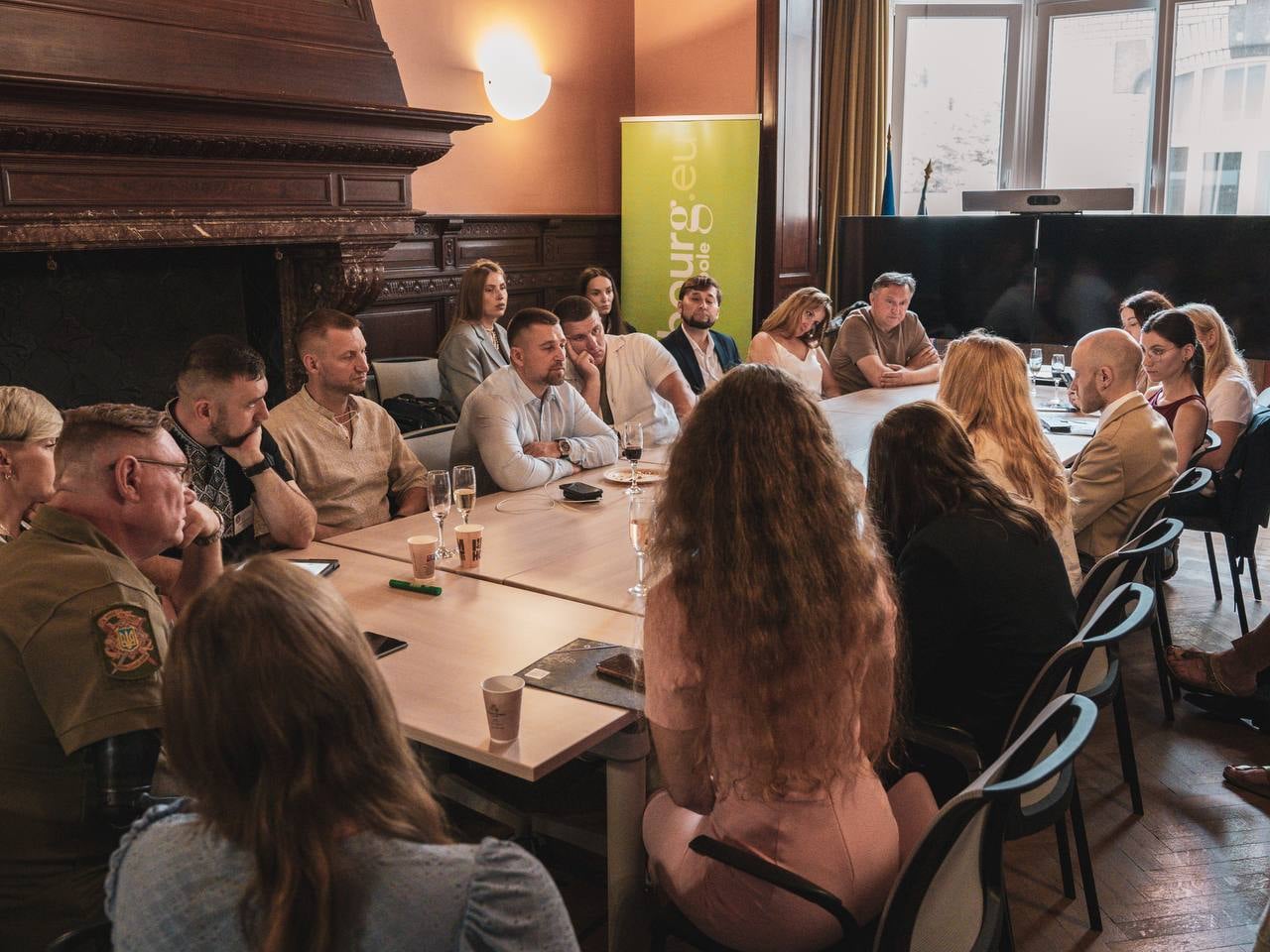Last month, the First Ukrainian Summit titled “Partnership, Innovation and Veterans’ Health” was held in Brussels at the Ukrainian Hub within the European Parliament. This event underscored the importance of Ukrainian veterans in nation’s recovery process. As a result of the summit, the New Start for Ukraine international platform was established to implement reintegration and adaptation programs for veterans.
Although the need for a comprehensive veteran policy in Ukraine has been pressing since the beginning of the war, it has not yet been implemented. How to ensure dignified government support and engage international organizations to deliver necessary services to veterans and their families? How to create an inclusive and barrier-free environment with equal opportunities for former servicemen?
The European Parliament, the European Commission and NATO representatives at the summit actively discussed the prioritization of veteran support, recalled the key assistance aspects and analyzed the effectiveness of new initiatives.
Head of the Ukrainian Mission to the EU Vsevolod Chentsov noted that mission representatives “are discussing with agricultural, IT and other companies, topics on how our fighters with new skills can contribute to economic recovery.” The head of the Ukrainian Mission to the EU mentioned the effectiveness of the Medevac program, which has facilitated medical evacuation and treatment for over 6,000 wounded soldiers in European clinics. He also emphasized the continuous allocation of financial resources, but noted the need for clear ideas on fund utilization. “The new veteran policy must be integrated into new logic of the state development, into a new moment of our European integration mobilizing all resources to help veterans and their families return to life.”
Educational programs are essential for veterans to adapt their skills to the new labor market realities. Political Advisor to the European Parliament Willem Hoefnagels spoke about the creation of a higher education institution that will enroll Ukrainian veterans.
“The last thing we did was creating an EU academy with help of ambassadors and the European Parliament we try to male that come true in the next year. It is about teaching young graduates and civil servants about the European Body of Law, and that would make the accession of Ukraine much easier and we understand each other much better. Within this academy we will reserve for the veterans of Ukraine several places for free,” the adviser to the European Parliament said.
Recalling the historical experience of Estonia, which also experienced Russian occupation, Advisor at the Directorate General for International Partnerships of the European Commission Henrik Hololei affirmed the steadfast support from the European Parliament, the European Commission and other institutions.
He deemed the summit especially important for veterans and another example of the EU’s support, expressing gratitude for their protection of Europe. “We are not able to understand what you have and are going through over these 28 months it the fight for freedom of Ukraine, but more so it has been the fight for the freedom of Europe. You are here more than Ukrainian veterans you are our European veterans. You sacrifice have been going beyond Ukraine as we acknowledge as well as respect that (…) And you desire to become fully integrated to the European family has not been unnoticed. Most important thing is to keep in mind that what you are part of transformation you want to do to improve your country your society, your business environment,” Hololei assured.
President of the Ukrainian Association of Reserve Officers and Veterans Volodymyr Dzhydzhora shared NATO’s experience working with veterans, comparing the models of NATO member states and the United States. For instance, the U.S. Department of Veterans Affairs provides veterans and their families with preferential housing loans, while in Denmark and Estonia, veterans’ affairs are handled by the Ministry of Defense.
“NATO has a non-governmental program uniting veterans from all NATO countries: they offer consultations, conduct social surveys, and promote the development of NATO member states’ veteran policies. Without a resocialization policy, Ukraine cannot expect NATO to accommodate all veterans or employ them in defense companies,” the president of the Ukrainian Association of Reserve Officers and Veterans said.
In turn, Chairman of the Ukraine-NATO Public League Serhiy Dzherzh proposed after analyzing a sociological survey on veterans’ needs, the creation of a unified treatment and rehabilitation system, transparent benefit and pension procedure, a special social service center for military personnel and their families, and a free legal support system to address bureaucratic issues.
It is worth noting that Ukrainian doctors and rehabilitators, who have excelled in treating severely wounded soldiers over ten years of war, raised the issue of the need for advanced European equipment. During the summit, European and Ukrainian clinics and rehabilitation centers established direct contacts and agreed on future cooperation.
EU and NATO assistance is crucial for supporting Ukrainian veterans, facilitating their medical treatment, psychological rehabilitation and professional adaptation. However, achieving optimal results requires improved coordination and comprehensive strategies to ensure sustained support for veterans and their successful integration into society.
The summit was attended by over 50 representatives from Ukraine and Europe, including delegates from the Ukrainian Association of District and Regional Councils, the European Association of Ukrainian Women, Ruthenia ICF, PanteonX Charitable Foundation and others.



